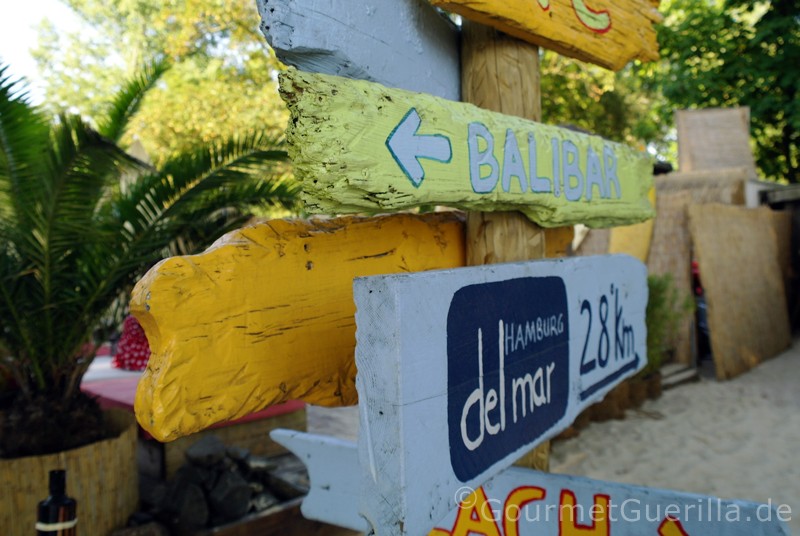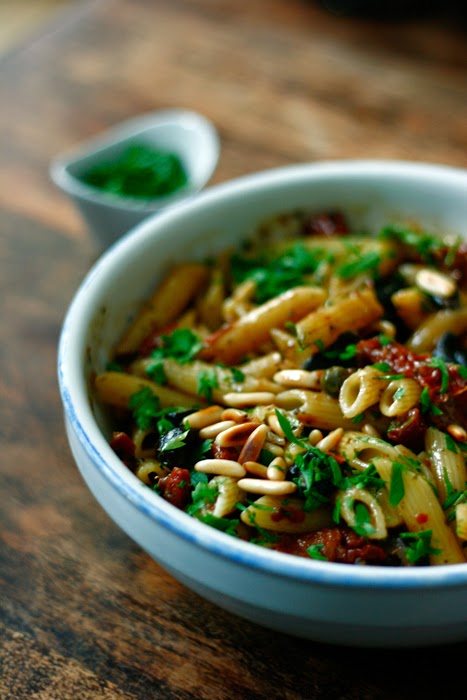Taking Care of Your Baby German Shepherd
Did you just get yourself a baby German Shepherd (puppy)? Do you have limited experience in training and taking care of your baby German Shepherd? If you answered yes to these two questions, then the information contained in this article would be perfect for your needs!
House training can be thought of as the process in which your German Shepherd dog or puppy gets used to his new environment, which in this case, your home! The goal of house training is not only to instill good habits, but also build a loving bond with your German Shepherd. In fact, puppies as young as 3-weeks old can be house trained. An example of house training is when a breeder observes as a baby German Shepherd eliminates, then quickly removes the soiled papers and replaces them with clean papers before the puppy have a chance to get through their mess. The breeder also ensures that the baby German Shepherd’s bed, food and water is as far away from the elimination area as possible. Be sure to read this post to find out if you should hire a dog trainer or house train your dog yourself.
Before we begin going over the details of house training your dog, there are a certain things that you need to get started! It is often helpful to have these items in place before your new baby German Shepherd steps into his new home as it allows him to learn the rules from the very first day. Below is a list of house training items that you should have:
1) Newspaper
The younger and larger your puppy is, the more newspaper you’ll need for your puppy to eliminate on. Newspaper, is not only absorbent, abundant and easily obtained, but it is also cheap. What better way to use old newspaper besides recycling!
2) Puddle Pads
Alternatively, you could get puddle pads which are thick paper pads which can be purchased in pet supply stores or online stores such as Amazon. An advantage of having puddle pads over newspaper is that the pads have a waterproof backing, which doesn’t allow your German Shepherd’s urine to seep through onto the floor. On the flip side, puddle pads are costlier than newspaper.
3) Plastic Bags
Whenever you take your dog outside your yard, you must pick up after him. In fact, in many towns and cities, it is a law that dog owners clean up pet waste deposited on the public ground. Quite rightly so, as dog waste can be unsightly, smelly and can harbor disease for other pets. Picking up after your dog is not as difficult/bad as it seems. All you have to do is put your hands in the plastic bag, pick up your dog’s waste, turn the bag inside out and finally tie the top.
4) Dog Crate
As most of you would probably know, puppies are especially playful and curious of their surroundings. As such, during times when you are unable to supervise your baby German Shepherd, you could confine your puppy with the use of a dog crate. Not only can dog crates serve to confine your puppy for short periods of time, but it can also be used as a comfortable bed at night. These dog crates are generally made up of either wire mesh or plastic. While the wire mesh ones are foldable and therefore are easier for storage, the plastic ones are cozy, draft-free, quiet and are approved for airline travel.
5) Baby Gates
Crating your baby German Shepherd for more than an hour or two at a time can lead to a frustrated puppy. That’s when baby gates come in; they are a good way to limit your dog’s freedom in the house. You’ll need more than one gate to close of a certain area if you have several doorways. It is also important to keep in mind to only purchase baby gates which are safe. In the past, old fashioned wooden, expanding lattice type gates have seriously injured no only the puppy, but also young children. Modern grid type gates are typically recommended.
6) Exercise Pen
If you’re taking your dog outdoors to a dog park for example, a portable, foldable exercise pen is perfect to ensure your baby German shepherd does not go around running everywhere.
7) Enzymatic Cleaner
Last but not least, an enzymatic cleaner made especially for pet accidents can help eliminate not only odors that you can smell, but also odors that your dog can smell. This will prevent your baby German Shepherd from eliminating at the same spots (dogs tend to eliminate where they have done it before, and lingering smells lead them to those spots).
As previously stated, house training your baby German Shepherd is merely a means to ensure that good habits are instilled in your dog. In other words, as a dog owner, you should never allow your dog to learn something that he will eventually have to unlearn. You can certainly start by teaching your dog that he has to eliminate outside. Designate a potty area in your backyard and take your dog to it as soon as you arrive at home. Let your dog sniff around, and when she squats to go, use markers such “potty” to help your dog associate that word to his own actions. It is important to take your puppy out to the potty area frequently on the first day. The key point is to establish a routine whereby you take your dog to the area, ask her to eliminate using the marker, and then praise her when finished. Just before bedtime, you should take your baby German Shepherd to her potty area once again. Be patient until your dog eliminates; this is to avoid your dog from eliminating in his sleeping area.
It is a good idea to have the sleeping crate near your own bed. As dogs are pack animals, they will feel safer and more comfortable sleeping with others in the same area. Besides, having your baby German Shepherd near you during the night allows you to hear him wake up in the middle of the night which is often due to the need to eliminate. This is especially true for baby German Shepherds which are less than 4 months old as they are often not able to hold their urine all night. While it may be difficult for you to get out of your bed to take your dog to the elimination area during the wee hours of the morning, it is essential that you do so to ensure good habits. Aside from that, there are two reasons why this is essential. The first being your baby German Shepherd will eliminate in his crate if you ignore his need to eliminate resulting in you having to clean up the mess in your bedroom. And second, it sends the wrong message about your expectations for cleanliness. Dogs learn by trial and error, and if eliminating in your bedroom seems “correct,” your dog will continue to do so.
The morning of the second day, it is also very important that you make it a priority to take your puppy out to eliminate at the designated potty area.
As a general rule of thumb, a dog that hasn’t finished house training should never be allowed to run around your home unattended. This gives your dog unlimited choices as to where your dog can eliminate. I like to think of the house training process as an avalanche; as soon as you get your baby German Shepherd into the momentum of practicing good habits, it just “snowballs.” Start right and your puppy will less likely to develop bad habits.
One of the best places to set up a puppy corral is the kitchen. Not only are kitchens mostly equipped with waterproof or easily cleaned floors, kitchens are also a perfect place in your home in which family members can interact with the baby German Shepherd. Through these interactions, your dog will be able to observe and learn what is the norm, what is acceptable and what is not. Through this, they also pick up some social skills with your family members and friends.
The way in which the corral area is set up is very important. Your dog’s bed, food and water should be on the opposite end of the corral from the potty area. Initially, you should aim to spread a couple layers of newspaper over the rest of the floor in the puppy corral. Be sure to overlap the edges! As your German Shepherd progresses in the house training process, you can gradually decrease the size of the papered area until only the end where you want the pup to eliminate is covered. It is recommended to start by removing papers nearest to your puppy’s sleeping and eating corner. Also, if you will be training your dog to eliminate outside, place newspapers at the end of the corral that is closest to the door that leads outdoors. This allows your dog to move away from the clean area to the papered area, forming a good habit in the process.
Scent markers can also be helpful to provide your dog with a cue as to where your dog should eliminate. This is often achieved by reserving a small soiled piece of paper when you clean up. This soiled paper, with your dog’s urine scent, is then placed under the top sheet of clean papers that you spread. This tip can also be applied if your dog is eliminating in the backyard. The goal here is to ensure that your German Shepherd eliminates where you want him to. Another valuable tip is to ensure that you pick up dog droppings at least once a day; dogs have a tendency to stay away from their own excrement. If there is a huge “buildup” of dog droppings in the potty area, your dog will like eliminate at a non-potty area.
Valuable Tip! Your puppy will be able to hold his urine for as many hours as his age in months, and will move his bowels as many times in a day as he eats. So if your baby German Shepherd is 3-months old and is fed once a day, he will urinate about every three hours and will have a bowel movement once a day. This is a fairly good estimation.
Baby German Shepherds, like kids, require lots of attention and patience. It is wise to make a chart to jot down your dog’s activities – times when eliminations take place, as well as times your dog is fed. After several days of jotting down such details, you should have a fairly good idea of your dog’s elimination patterns. This will enable you to schedule fairly accurate potty outings in the backyard.
Besides that, understanding your dog’s postures can also play a vital role. A German Shepherd puppy who has the urge to eliminate may start to sniff the ground and walk in circles. If the puppy is very young, he may just simply squat and go; thus the squatting action can act as a cue for you to rush your puppy to the potty area!
Now, what if you see your puppy about to eliminate somewhere other than the designated potty area? If this happens, interrupt him immediately; you could say something like “wait, wait, wait” which will startle your dog to stop. At this point, you could carry your puppy or lead him to the correct potty area and give him the command to eliminate with a friendly tone. As your puppy will likely be tensed up after being startled, you need to give your dog some time before he eliminates. After which, you could use a positive marker such as “good potty” to let your dog know that he has done a good job. In any case, as discussed previously, punishment is not the way to go.
If you do spot a pile of dog droppings at a non-potty area, what you can do is take your dog to the mess, and use negative markers (words) to let your dog know of his unacceptable actions. You could say something like “no potty here.” Then, pick up the droppings with a plastic bag, drop them in the potty area and say “potty here.” Your puppy will eventually get better after several errors.
Finally, owning and training a German Shepherd can pose many challenges, especially for inexperienced dog owners. Let’s be honest, we’ve all been there. We can assure you that it’ll all be worth it in the end! Therefore, setting up goals and expectations are vital to the success of house training your German Shepherd. With clear goals and expectations, you will be able to devote time, effort and resources to better succeed your goals. Be sure to check out our Ultimate Guide to German Shepherd Training to learn more about how to train your German Shepherd puppy.




